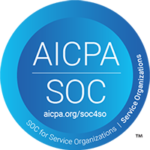Of all the shows we attend each year, few can match the Conference Board Employee Health Care Conference. It’s so good, they hold it twice—once on each coast. We’re fresh off the second leg in San Diego.
Now in its 18th year, Conference Board has the reputation as the best event offered on the topic of employee healthcare. Top employers and industry leaders gather to share best practices, case studies and chart the way forward.
This year’s content focused on official themes like:
- Capitalizing on Change: The Competitive Advantage of an Effective Total Rewards Strategy
- The Power of One: Helping Your Employees and their Families Navigate the Brave New World of Health Care
- The Well-Being Imperative
Among other insights, the keynote from Willis Towers Watson touched on how difficult it is in the current market to attract and retain a high-quality, diverse workforce, and how critical health benefits are to the equation. Salary still wins out, but employees rank health and well-being a close second.
The thought leaders in San Diego (and two weeks ago in New York) all implied that employers who can help employees improve their lives through better health and well-being and transform the way they receive health benefits will enjoy a competitive advantage.
The words “innovation,” “personalization” and “transparency” echoed from every presentation, it seemed.
Honestly, we didn’t pay all these leaders to say those things. They just spoke to exactly what Rx Savings Solutions has been saying and doing since our inception.
Innovation: as in developing patented software that changes a patently unfair and unnecessarily costly game.
Personalization: as in proactively delivering benefits to members at an individual level, rather than making them come to us.
Transparency: as in bringing to light the choices that drive a clearer, more comprehensive view of the market and enable smarter decisions and behaviors.That’s a recipe for competitive advantage—for employers, and all of us as consumers of healthcare.



